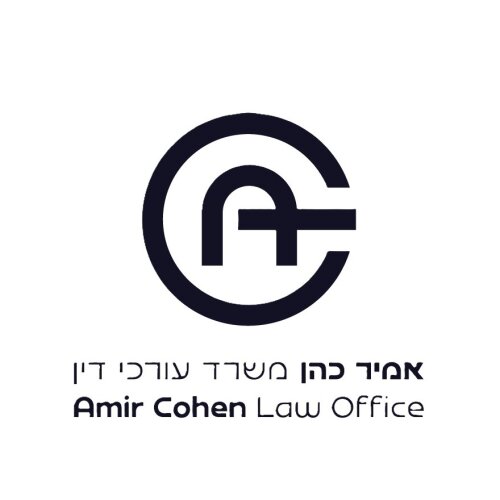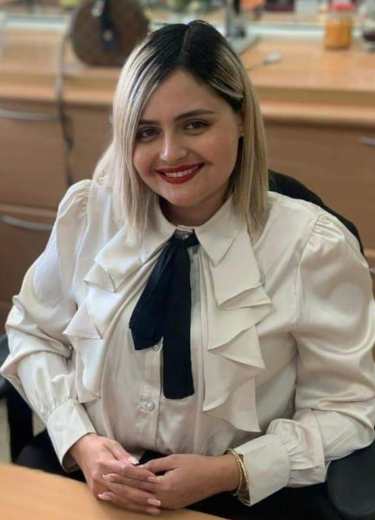Best Collaborative Law Lawyers in Tel Aviv
Share your needs with us, get contacted by law firms.
Free. Takes 2 min.
Free Guide to Hiring a Family Lawyer
List of the best lawyers in Tel Aviv, Israel
About Collaborative Law in Tel Aviv, Israel
Collaborative Law in Tel Aviv, Israel is a legal approach that focuses on resolving disputes through negotiation and cooperation without going to court. It is particularly used in family law matters, such as divorce, child custody, and property settlements. The process involves both parties working with trained collaborative lawyers, along with other professionals like financial advisors and mental health experts, to reach a mutually acceptable agreement. The aim is to maintain a respectful and amicable environment, enhancing the possibility of a positive outcome for all involved.
Why You May Need a Lawyer
Common scenarios where you may need legal help in Collaborative Law include:
- Divorce proceedings where both parties seek an amicable resolution
- Negotiations for child custody and visitation rights
- Division of property and financial assets
- Establishing spousal or child support agreements
- Business disputes where both parties want to avoid court
Having a lawyer trained in Collaborative Law can help navigate these complex issues while avoiding the adversarial nature of traditional litigation.
Local Laws Overview
In Tel Aviv, the legal framework for Collaborative Law is derived from general legal principles combined with specific collaborative practices:
- All parties must agree in writing to participate in the collaborative process.
- Collaborative lawyers are distinct from litigation lawyers and cannot represent their clients in court if the collaboration breaks down.
- Confidentiality rules apply to all negotiations and communications within the collaborative process.
- Both parties must make full, honest, and voluntary disclosure of all necessary information.
- The focus is on transparency, open communication, and maintaining respect among all parties.
These principles ensure that the process remains fair and solutions are tailored to the unique needs of the parties involved.
Frequently Asked Questions
What is the main difference between Collaborative Law and traditional litigation?
Collaborative Law focuses on facilitating agreements through cooperative negotiation rather than adversarial court proceedings, aiming for mutually beneficial solutions without going to court.
How do I find a collaborative lawyer in Tel Aviv?
Look for attorneys who are specifically trained and certified in Collaborative Law. Organizations like the Israel Bar Association can provide referrals.
Can Collaborative Law be used for non-family disputes?
Yes, Collaborative Law can be applied to various disputes including business conflicts, will and estate issues, and other civil matters.
What happens if we can’t reach an agreement?
If an agreement cannot be reached, both collaborative lawyers must withdraw, and the parties can then seek litigation with new counsel.
Is the collaborative process confidential?
Yes, confidentiality is a key aspect of Collaborative Law, ensuring that discussions and documents are not disclosed outside the process.
How long does the collaborative process take?
The duration varies, but it is generally faster than traditional litigation as it aims to find solutions efficiently while avoiding court delays.
Are other professionals involved in the collaborative process?
Yes, other professionals like financial advisors, mental health specialists, and child experts may be involved to provide specialized guidance and support.
Do both parties have to agree to use Collaborative Law?
Yes, Collaborative Law requires the voluntary participation and consent of both parties to proceed.
What is the cost of the collaborative process compared to litigation?
The cost is often lower than litigation since it avoids court fees and aims for a quicker resolution, though it can vary based on the complexity of the case.
What if there is a power imbalance between the parties?
The collaborative process includes measures to ensure that both parties have a voice and that any power imbalances are addressed with the help of the legal and other professionals involved.
Additional Resources
Here are some valuable resources for those seeking legal advice in Collaborative Law in Tel Aviv:
- Israel Bar Association (IBA) - Offers referral services to qualified collaborative lawyers.
- Ministry of Justice - Provides information on family law and dispute resolution.
- Tel Aviv Mediation Center - A resource for mediation services that can complement collaborative law efforts.
Next Steps
If you need legal assistance in Collaborative Law, consider the following steps:
- Consult with a certified collaborative lawyer to discuss your specific needs and the process.
- Gather any relevant documents and information pertinent to your case.
- Discuss the possibility of involving other professionals who can aid in the resolution process.
- Sign a participation agreement to formally start the collaborative process.
- Engage in open, honest, and respectful negotiations with the aim of reaching a mutually acceptable agreement.
Lawzana helps you find the best lawyers and law firms in Tel Aviv through a curated and pre-screened list of qualified legal professionals. Our platform offers rankings and detailed profiles of attorneys and law firms, allowing you to compare based on practice areas, including Collaborative Law, experience, and client feedback.
Each profile includes a description of the firm's areas of practice, client reviews, team members and partners, year of establishment, spoken languages, office locations, contact information, social media presence, and any published articles or resources. Most firms on our platform speak English and are experienced in both local and international legal matters.
Get a quote from top-rated law firms in Tel Aviv, Israel — quickly, securely, and without unnecessary hassle.
Disclaimer:
The information provided on this page is for general informational purposes only and does not constitute legal advice. While we strive to ensure the accuracy and relevance of the content, legal information may change over time, and interpretations of the law can vary. You should always consult with a qualified legal professional for advice specific to your situation.
We disclaim all liability for actions taken or not taken based on the content of this page. If you believe any information is incorrect or outdated, please contact us, and we will review and update it where appropriate.











